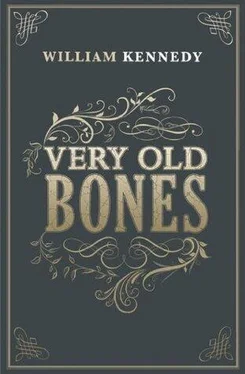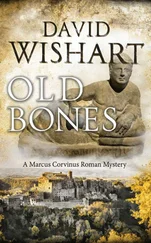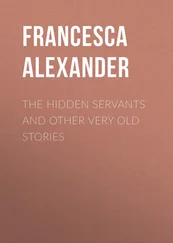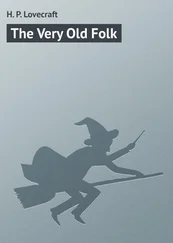O: This is speculative conversation. Crime is often an aggressive form of stupidity. Don’t be upset.
C: You think stupid guys get away doin’ what I do? You think the boss’d trust me if I was stupid?
O: Maybe you were doing it to escape.
C: Now you’re talkin’.
O: But you didn’t escape.
C: I had a chance.
O: You gambled with your life. You’re a gambler.
C: I never win nothin’.
O: Would you consider yourself an unlucky man?
C: Yeah, could be. But, shit, luck ain’t everything. I know a lot of unlucky guys who got nothin’ but money.
O: Perhaps it was madness.
C: I’m as sane as you are, friend.
O: That’s not saying a whole lot, but we won’t go into that here. Perhaps it runs in your family. If your entire family was mad then possibly you are as well.
C: My old man wouldn’t let any nuts run around in the family.
O: What about fear? People get their backs up when they’re afraid, when they think something might destroy them, or what is most valuable to them.
C: Balls. I been in half a dozen shootouts. You want the rundown?
O: No need. Consider that you may have been foolhardy. More brave than smart, in other words. Is that why you did it?
C: We do what we do because we gotta do it. You don’t like that reason I’ll give you another one. We do it because it’s gotta be done.
O: A compulsive, responsible hoodlum. That’s rare indeed. But shooting it out with the police all but presumes a belief in your own unkillability
C: Oh yeah?
O: One might describe it as hubris, which of course means challenging the gods to destroy you.
C: You’re one of them smart bastards.
O: If I may sum up, you enter into this sort of contretemps with total awareness, and you do it because you decide it’s the valorous thing to do, because it proves that at your center you are a courageous individual, because it is your obligation to a world you mistakenly believe you understand, and that, no matter what the odds against you or your ideas, you are the final arbiter of your own action. Captain of your soul, so to speak. Am I wrong?
C: What the fuck are you talkin’ about?
O: It remains to be seen. One final question. Do you think it’s possible that you’re not really dead, that you have a chance at resurrection, I mean coming back to life?
C: Nah, I’m dead.
O: Thank you, Mr. C.
I decided that not only was I an eschatophiliac, but also an eschatophile. It seemed to be the healthiest of all possible conditions: In this most illuminating darkness of the city’s night I could distinguish the last weakened light of end times, could see, with my heightened vision, that in The Candy Box’s sign the ionized neon had grown sooty in its finality, a soiled and fading flickering of the city’s last artificial light. Above my head the sky had turned increasingly frigid and black in a sunless world, and I knew that death was on the prowl. Could judgment, heaven, or hell be far behind? Even scavengers cringe in light such as this, for it destroys even the appetite to survive. Only solitude, and the contemplation of the ease of existence in the face of futility, are viable now. Suicide is pointless, for the entertainment value of terminal events exceeds that of the vapid flight to oblivion.
I now realized how much I loved to lose. Acquisition had invariably brought with it the anxiety of loss, and the settling in of that anxiety had always proved to be a prelude to harsh reality for me. This was how I had lived. I created the highs and lows of my life. I accumulated the Giselles and Les Montrachets of my days, and then I lost them. I would never again enumerate all that had been taken from me, and I blamed no one for this recurring phenomenon. I was beyond blame and had come to understand that this was the natural curve of life, especially for the Phelans. This knowledge elevated my spirit, for I knew I would live under no more delusions. I would be prepared for the worst that life could offer. Solitude, contemplation, and waiting for the finale: these were the meaningful pursuits. And also, oh yes, the elimination of the past. I would throw out all that I had written, all my letters (including those from Giselle; especially those from Giselle). I would throw out all books that did not enhance solitude. I would throw out memory. I would throw out the memory of Miss Nelson, in whose home I roomed when I first went to Albany to live. Demure, old, white-haired Miss Nelson, retired schoolteacher, had lost her connection to significance long ago. Where had it gone? There, under her canopy bed, I saw one day the bright light of yesterday’s loss shining on forty empty bourbon bottles. Goodbye, memory of Miss Nelson. I would also throw out the memories of Quinn. That would take time, there were so many. I would begin with the night at the Grand View Lake House when I was with Joanie Mac in the boat house, my hand down at Joanie’s place, when we saw Wanda, the new waitress, come back to the hotel’s servants’ quarters with Liver Mason, back from the movies in Saratoga. Let me kiss you, Liver said, and as he threw his arms around her, Wanda peck-pecked his liverly lips and pushed him away. Tomorrow again? pleaded Liver. Tomorrow maybe, said Wanda, and she ran up the stairs to bed. Getting some air, Quinn came out the back door of the hotel bar, whistling, searching in life for the elusive meaning of his solitude, and Wanda, after less than eight bars of the whistling, bounded down the stairs, took Quinn’s arm, and — just as if it were planned — they came into the boat house, his hand already up at Wanda’s, and he said later he never expected it to happen, didn’t know she was there, hadn’t been following her and Liver, was surprised out of his socks, was just out for a walk, and other genuinely true lies he told himself. Quinner the sinner. Quinner the winner. Goodbye, Quinner at the boat house. Goodbye, Quinner in Europe with Giselle. And I felt lightened already. It would be a pleasant thing to unmemorize my life. It would prove I was no longer afraid of time. I would sit in my window and watch the garbageman take away the evidence that Orson Purcell had ever existed.
And so I moved on, ever deeper, into the lovely, lovely darkness, thrilled by it all as only a true eschatophile can be.
In the early spring of 1953, and with blinding illumination on through the fall of 1954, Peter Phelan came to perceive this: that individuals, families, or societies that willfully suppress their history will face a season of reckoning, one certain to arrive obliquely, in a dark place, and at a hostile hour, with consequences for the innocent as well as for the conspirators. Peter saw this first in my collapse, and then in the rolling boil of divine vengeance visited upon his brothers and sisters in these years.
In much the way that he had left Colonie Street in 1913 to escape what he saw as the shallow morality of his mother, only to discover that a tissue of other reasons had contributed to his move (and her behavior), so in November, 1954, did he return home to cope yet again with the Phelan family shallows, again pushed to doing so by ancillary reasons: the death and departure of so many friends from his changing Greenwich Village neighborhood and his near isolation as a result of this, his diminishing bank account, deficient income, and the appealing prospect of free rent in Albany, his growing problem with arthritic hips, which prevented him from standing at his easel and had sat him prematurely in the novice invalid’s chair, his unflagging love for his brothers and sisters, and, not least, his distance from me, about whom he had begun to fret in unreasonably paternal ways.
Peter’s return home was brought on by a series of events that began with a modestly scandalous public moment; but also by the climax of long and bitter discord in the lives of Sarah, Tommy, and Chick Phelan, and finally by the death of Sarah. The return would also transform Peter’s work radically and set him on a quest not only to understand the chain of causation that had led the family to a crisis of sanity and survival, but also to memorialize it in art.
Читать дальше












